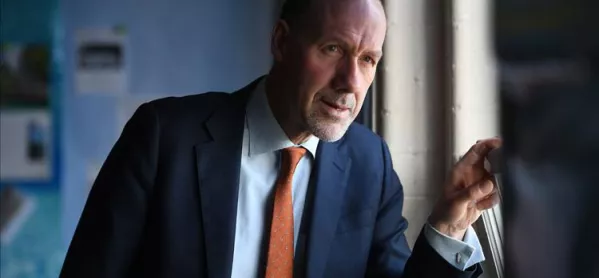In the final act of Shakespeare’s The Merchant of Venice, the wealthy and charismatic Portia gazes longingly through the darkening night towards her home beyond Venice, in the little-known town of Belmont.
Portia turns to Nerissa, her servant, and says:
That light we see is burning in my hall.
How far that little candle throws his beams.
So shines a good deed in a naughty world.
As so often with Shakespeare, they are lines of devastating simplicity and beauty.
In the theatre, audiences sometimes laugh. That’s because nowadays the word “naughty” has associations of playful but forgivable wrongdoing. “Naughty” has come to suggest trivial and ultimately harmless.
But from its Old English roots, “naughty” meant something different. It signified a sense of “naught” - of nothingness. It became the absence of good.
So, from the late fourteenth century onwards, “naughty” wasn’t playful at all. It meant wicked.
That candle flickering in Portia’s hallway reminds her of a good deed in a wicked world.
Which brings us neatly to schools and colleges and the general election.
Because, even if the world beyond our playgrounds and gates doesn’t necessarily feel wicked, it’s certainly uncertain, often unnervingly so. And even more with a general election in the offing.
Few members of the electorate will be more keenly aware of the uncertain conditions that elections bring than the leaders of our educational institutions. And I don’t mean because they’re wondering whether this last-minute voting spree at the fag-end of the year is going to require them to close their schools for polling.
Instead, they’ll be thinking that another volley of reforms - so often distractions from the things that really matter - may be about to be unleashed.
Even before the election was declared, leaders had heard all the funding promises - some (for schools) longer-term; some (for colleges) woefully perfunctory.
Now there’s all the talk of scrapping inspection in its current guise; whispers of more grammar schools; plans to abolish independent schools by stealth; plans to dispense with KS2 tests; and many more wacky wheezes that currently reverberate around education’s echo chamber.
And whatever their personal views on any of this stuff, leaders will know that too often they’ll be expected to implement changes to a madcap timetable, with too little evidence, because our tribal parliamentary system engenders short-termism, while education requires long-termism.
And many will long for a time when education and politics weren’t quite so inextricably bound up.
I write this on a day when I’ve visited a large further education college in Lincolnshire and witnessed adults doing what adults should be doing - helping to prepare the next generation to take their place in the world with the relevant knowledge, skills and values they need to be responsible and fulfilled citizens.
I saw education in its purest form - a candle casting its light of optimism.
How different this is to what has happened in the political sphere. Just in the past week, quite disgracefully, we have seen far too many good people feeling hounded out of public life - women, in particular - because of a national discourse that has become toxic, unforgiving, polarised and snide.
It feels as though we live in an age when too many adults behave like children, while children often seem to display the good manners that we expect from adults.
And there is a reason why so many of our young people behave better than many grown-ups who should know better.
It is because our schools and colleges, supported by hard-working parents, are teaching them the right values. They insist on respect and courtesy which celebrates rather than denigrates difference of opinion. And they prize qualities that rarely figure in the way education is measured - citizenship, leadership, inclusivity and optimism.
If there is any comfort to be derived from the wretched state of our political life it is this: that the future is brighter than the present. In our educational institutions and the people who populate them - the children and the adults - I see beacons of optimism.





